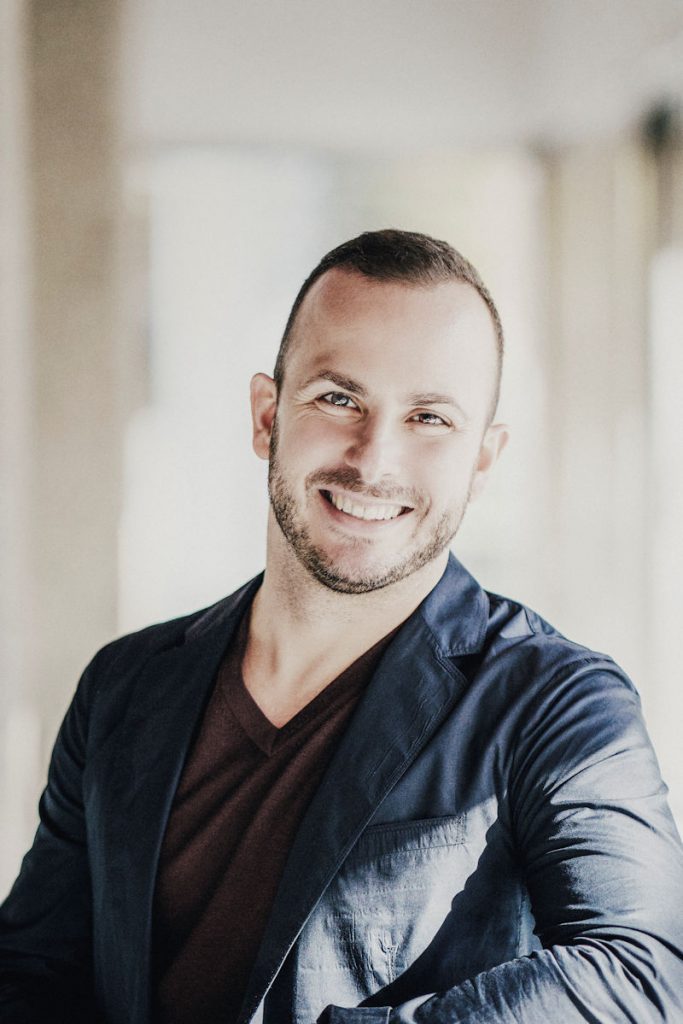Yannick takes the reins two years early for Met’s 2018-19 season

Now that the New York Philharmonic’s new maestro, Jaap van Zweden, has made a splash with the announcement of his first season as the orchestra’s music director, the Metropolitan Opera has quickly followed up with big news about their own incoming head.
Thursday morning, the company announced that Yannick Nézet-Séguin, the designated next artistic director, will begin his tenure this September, two seasons earlier than originally planned.
Seemingly an administrative result of the dismissal of emeritus director James Levine, Nézet-Sequin’s rescheduled start date calls for him to conduct three productions in the 2018-19 season—La Traviata, Pelléas et Mélisande, and Dialogues des Carmélites—and comes with a $15 million gift from the Neubauer Family Foundation for the music director position.
La Traviata, opening December 4 and starring Diana Damrau, will be one of four new productions in the season, this one via Michael Mayer, who created the popular Las Vegas-style production of Rigoletto that has been one of the high points of the Met’s last several seasons. The limited number of new productions is due to the revival of Robert LePage’s expensive, Ring cycle; Philippe Jordan will lead all three cycles, beginning March 9, 2019.
Soprano Christine Goerke will return to the Met for the first time in five years as Brünnhilde, with a cast that includes Greer Grimsley and Michael Volle as Wotan; Stefan Vinke and Andreas Schager as Siegfried; Tomasz Konieczny (Met debut) as Alberich; and Gerhard Siegel returning as Mime. In addition to the three complete cycles, the Met will present individual performances of Das Rheingold on March 14, and Die Walküre on March 25 and April 25.
The remaining new productions begin with Samson et Dalila, which will open the season on September 24, with Sir Mark Elder conducting, and Elīna Garanča and Roberto Alagna starring. October 19 will be the North American premiere of Nico Muhly’s new opera, Marnie. Based on Winston Graham’s novel, by way of Alfred Hitchcock’s 1964 film, it stars Isabel Leonard in the title role opposite Christopher Maltman as her blackmailing husband. This is another Mayer production and Robert Spano will conduct.
The final new production of the season is an unusual choice, Francesco Cilea’s Adriana Lecouvreur, from director David McVicar. This celebrated diva vehicle will open New Year’s Eve with Anna Netrebko in the title role of the 18th-century actress in love with the military hero Maurizio, sung by Piotr Beczala. Gianandrea Noseda conducts.
After La Traviata, Nézet-Séguin returns to the pit January 15, for the opening of Pelléas (a revival of Sir Johnathan Miller’s production). Leonard will sing Mélisande with Paul Appleby as Pelléas, and Kyle Ketelsen as Golaud. Leonard will be paired again with the conductor, when she sings Blanche de la Force in Carmélites, which opens May 3.
Other notable highlights of the 2018-19 season include Netrebko making her Met role debut as the title character in Aida (September 26)—Nicola Luisotti and Placido Domingo will share the conducting; Jonas Kaufmann will share the role of Dick Johnson with Yusif Eyvazovstar in Puccini’s La Fanciulla del West, opposite Eva-Maria Westbroek, opening October 17; Gustavo Dudamel makes his Met debut on December 14, conducting Verdi’s Otello in a revival of Bartlett Sher’s 2015 production; Stuart Skelton will sing the title role, with Sonya Yoncheva as Desdemona and Željko Lučić as Iago.
Yoncheva will also appear in the revival of Tchaikovsky’s Iolanta, along with Matthew Polenzani, in the Met’s double-bill evening that pairs with Bartók’s Bluebeard’s Castle, starring Angela Denoke and Gerald Finley. Henrik Nánási will conduct in his Met debut (opening January 24). Mayer’s Rigoletto opens February 12, rotating with Roberto Frontali and George Gagnidze in the lead, with Nadine Sierra and Rosa Feola as Gilda, and Vittorio Grigolo and Bryan Hymel as the Duke.
Other revivals of recent productions include the Met’s latest Tosca, with Sondra Radvanovsky, Joseph Calleja as Cavaradossi, and Wolfgang Koch as Scarpia, starting October 25 (performances will return in March, 2019, with Jennifer Rowley in the title role); on November 14, Penny Woolcock’s production of Les Pêcheurs de Perles will return, with Pretty Yende in the lead as the Hindu princess pursued by Javier Camarena and Mariusz Kwiecień; and Robert Carsen’s production of Boito’s Mefistofele will return for the first time in almost twenty years, on November 8, with Christian Van Horn as the philosopher, opposite the Faust of Michael Fabiano.
Julie Taymor’s abridged, English-language production of Mozart’s The Magic Flute will return as the season’s holiday production, opening December 19. Nathan Gunn will sing Papageno, the star of this version, with Ben Bliss as Tamino, Erin Morley as Pamina, and Kathryn Lewek returning as one of the great Queens of the Night.
For further season details and tickets, visit metopera.org or call 212-362-2000
Posted Feb 17, 2018 at 12:12 pm by Vincent Blasi
My spirits soared when I learned there will be a new production of Traviata. Then I learned that it will be by Michael Mayer. Crash. I have seen his Rigoletto twice (as well as Decker’s Traviata several times). I yearn for the opportunity once again to experience Verdi’s dramatic genius unbesmirched by lesser minds in search of cheap thrills. Not to be, it seems.
Posted Feb 17, 2018 at 10:40 pm by Yes Addison
Vincent, Michael Mayer has a single opera production to his name. It’s not as though you have a long history of suffering through his “cheap thrills,” and an identifiable style to expect. Have you looked at the set models on the Met’s site, or read the description of it? Maybe you’ll like it.
Posted Feb 22, 2018 at 7:47 am by Vincent Blasi
Point taken. The set models do look promising. I overreacted to a decade’s worth of “suffering through” Met productions that fail to serve the music.